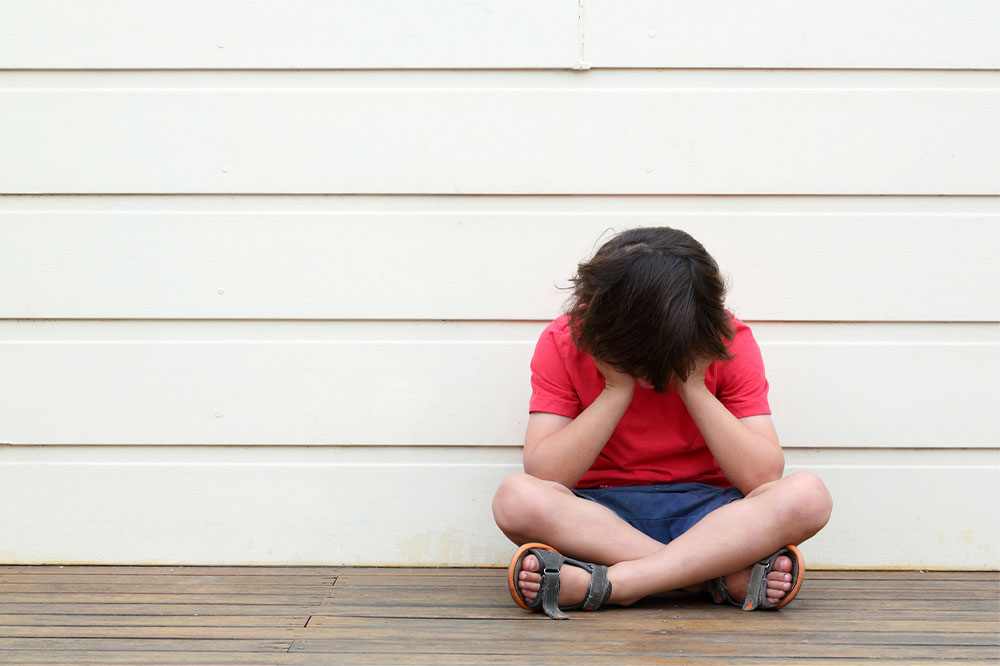6 common signs of child neglect

Appropriate support from caregivers can help children grow into healthy and happy individuals while neglecting to provide such care can interfere with a child’s emotional growth and cognitive development. Neglect develops when a child’s basic needs are not adequately met, often negatively impacting them. Here, recognizing and addressing the signs of child neglect through timely intervention, support, and protection can help ensure all-around well-being.
Signs of child neglect
Poor hygiene
A common sign of neglect in children is poor hygiene and cleanliness. The child would consistently show up in clothes that are unwashed, torn, inappropriate for the weather, ill-fitting or untidy. Additionally, the child could have messy hair or nails, have skin rashes, or even show signs of poor oral hygiene. With toddlers and infants, the signs are different. Poor hygiene due to neglect will most often manifest as frequent diaper rashes. This occurs when the child is left in dirty diapers for too long, is not cleaned during diaper changes, or is wrapped in unclean reusable diapers. Most diaper rashes clear up in 2-3 days if properly treated.
Slow cognitive development
Consistent neglect can affect a child’s ability to reach standard developmental milestones. The absence of an actively responsive relationship can cause the child to develop problems in learning, solving problems, and socializing. Neglect can cause cognitive delays, issues with the body’s stress response, or even stunting of physical growth. Over time, neglected children could develop poor language and social skills, making it difficult for them to function in society.
Frequent health issues
Poor health is a common sign of child neglect and can be the result of poor nutrition, hygiene, lack of proper sleep, and inadequate emotional support. The child may become susceptible to infections leading to frequent bouts of flu and skin problems such as rashes, ringworms, scabies, flea bites, or sores. The child may also experience signs of health conditions like anemia, weak muscle tone, weak joints, and dental problems. Additionally, untreated injuries from frequent accidents could be a sign of inadequate parental supervision.
Behavioral changes
The absence of emotional support and affection at home can sometimes make it difficult for a child to communicate effectively, regulate their emotions or behave in a way that is compatible with their peers. They could start to show signs of volatile behavior and anger, often lashing out over seemingly minor issues. Alternatively, the child may become extremely clingy or completely withdraw and refuse to socialize.
Poor academic performance
The lack of parental supervision could affect the daily routine of the child, leading to irregular sleeping patterns, no curfew, and no dedicated time for play or school work. Here, lack of rest can make it difficult for the child to go to school every day and pay attention in class, which can affect their academic performance. Additionally, if the child does not receive enough attention and assistance at home to carry out academic activities, they may be unable to complete assignments, homework, and projects. As a result, they might have trouble performing at par with classmates and may end up facing disciplinary action, which in turn could make them even more stressed.
Low self-esteem
The lack of attention, validation, and affection from caregivers can make a child develop low self-esteem and an inability to perceive themselves accurately. As a result, they may find it difficult to socialize with other children. They may also struggle to proactively participate in extracurricular activities and team sports. Further, due to a lack of confidence in their abilities, the child may often find it hard to take part in group activities or have one-on-one conversations with peers.
Support measures
It is important to pay close attention to a child’s well-being if they exhibit one or more of these signs of neglect and seek to provide necessary support. In addition, one can find other ways to help children in need around the world, like contributing to humanitarian organizations. Providing financial aid or volunteering time to such organizations can help neglected children find the resources and environment they need to be healthy and happy. Here are a few organizations that can help children in need:
Save the Children: Established in the country in 1932, the objective of this organization is to work toward improving the lives of children, providing them with opportunities to learn and offering protection from neglect. The organization tries to achieve these goals through multiple programs providing education, health, emergency response, and nutrition to children around the world. Contributions to Save the Children can be made through monetary donations, gifts, and private child sponsorships. When one sponsors a child, they are provided with continuing healthcare and access to education. All of these options can be accessed on the official website of the organization.
DonorsChoose: This non-profit organization facilitates and supports public school teachers by providing them with the necessary resources to create an enriching classroom experience for students. Founded in 2000, DonorsChoose aims to combat socioeconomic inequity in public school funding. Here, teachers sign up for the various programs and request much-needed classroom supplies. The contribution here can be in the form of donations toward a teacher’s project or goal, helping children get the education they deserve.
Direct Relief: One of the oldest non-profit humanitarian organizations, Direct Relief helps provide urgent and lifesaving medical resources to those living in poverty or emergency situations. Some of its key programs include maternal and childcare projects, health disorder prevention and treatment, support for community clinics, and emergency preparedness and response. Additionally, the organization takes part in policy-making to help strengthen and improve the healthcare system. The donations made to this organization are utilized to support local community healthcare centers and clinics by providing them with medical supplies.